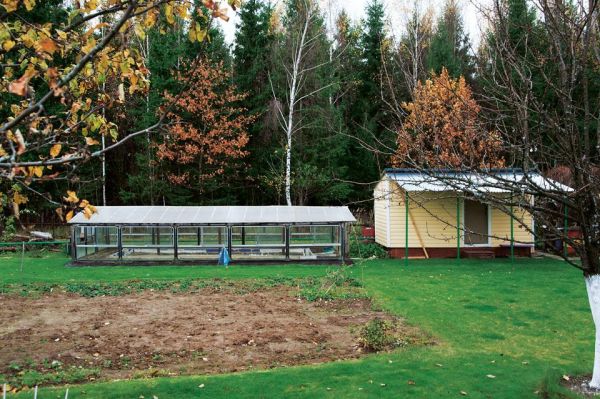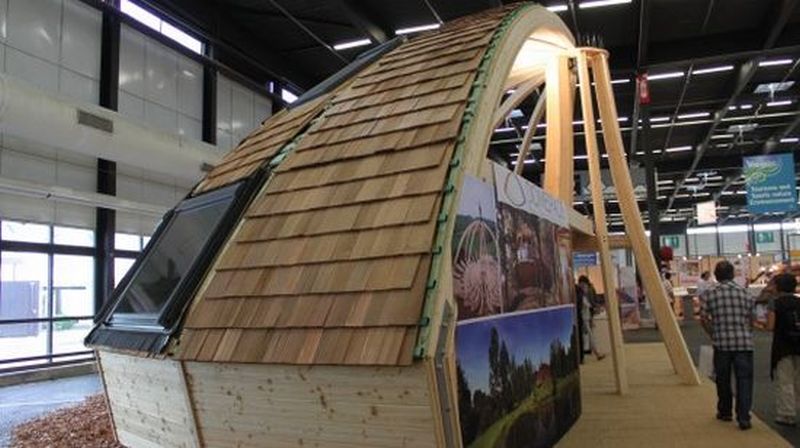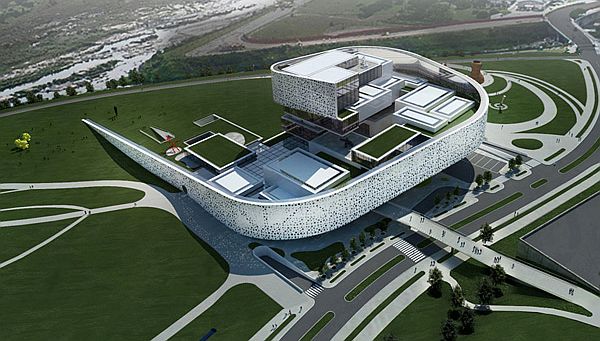Leftovers of the legendary Soviet era’s Ikarus 280 buses in Russia rest as architectural prostheses in Beryozka-6, a rural village a few dozen miles away from Moscow. The Hungarian-manufactured Ikarus 280 buses, which were doing transportation services in Russian cities during the Soviet regime, are converted to houses, bathrooms, kitchens and others in the scenery cottage settlement. Beryozka-6 is now a highly interesting location for both nature lovers and history enthusiasts, who can also enjoy the blessed scenery in the backdrop of the cottage with Ikarus 280 constructions.

Evolution of the cottage settlement in Beryozka-6 has been historical as well. The settlement, originally named Avtobusniki, which means ‘bus people,’ was established in 1989, the most chaotic year in the history of Soviet rule. As you can assume, the Avtobusniki cottage settlement was allocated for workers of the Ikarus 280 bus services. But as the Soviet regime met with its historic decline in the same year, the workers were provided with the halves of the written-off Ikarus 280 for accommodation purpose.
Over the years, the buses in the area have been utilized or recycled for housing and related requirements. Today, the cottage remains as a typical example for ‘stone-age high tech’ with the Ikarus buses being turned to complete housing facilities. If you make a visit, you can see a variety of household facilities and utilities made from the old buses. Even the spare parts and windows of the old buses are used in gardens, greenhouses and other similar creations.
As Sergei Kulikov, an architecture and historian, notes on Domus, the Beryozka-6 cottage settlement is a great identification for the use of technology in architectural prostheses, standardization of housing facilities and DIY architecture. Of course, by utilizing the remnants of the Ikarus 280 buses for a wealthy cottage settlement, the country has shown off an exemplary model for the world, which is thirsty for a green revolution.
There is even a small church in the cottage, which is built by Andrei Strebkov, a priest from Zainsk, recycling a LIAZ model bus in 2011. Over the years, the lifestyle in dachas, which are cottages allotted to families under the Soviet government, underwent drastic changes. In fact, this is what ended up in the allocation of the Beryozka-6 cottage settlement to bus employees in 1989. Under the Stalin regime, dachas were only allotted to the scientific and cultural elites of the society. But Khrushchev’s modifications made the dachas accessible to all people including factory and bus workers. Of course, it is quite amazing that through the years occupants of the Beryozka-6 cottage also evolved with a green lifestyle.
Via: Domus




